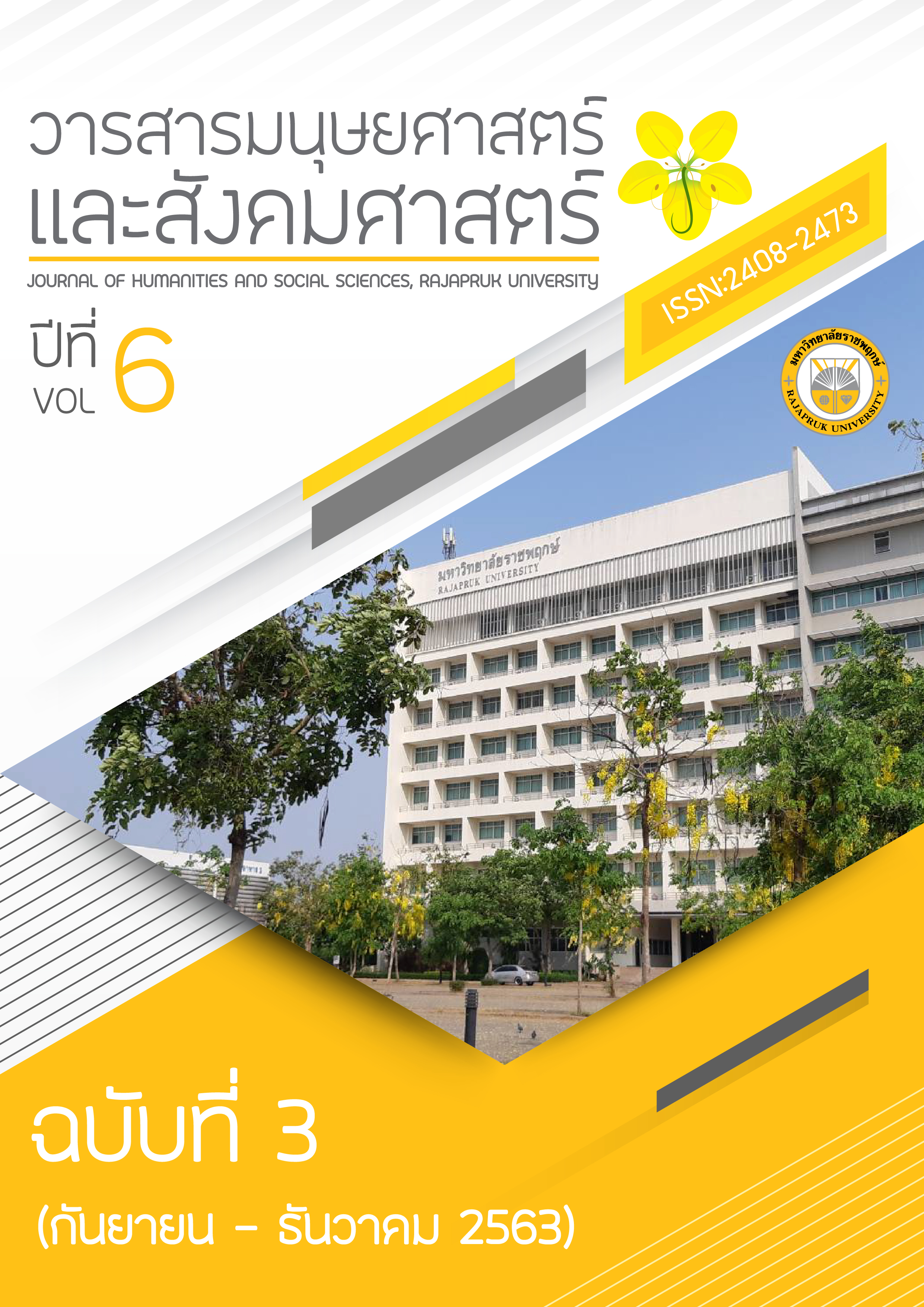The Characteristics of Social Entrepreneurs in Thailand
Main Article Content
Abstract
The purpose of this research was to identify the characteristics of social entrepreneurs that was using the character-based approach, which composed of the personality structure and the human capital of a social entrepreneurs. The population was the social entrepreneurs and there were 103 valid questionnaires. Findings showed that most of social entrepreneurs were female, between 21–40 years old, mostly single, and undergraduate level of education. Moreover, most of social businesses were sole proprietorship and they were in wholesaler and retailer business. In addition, top three characteristics were planning, persistent, and commitment. However, based on the finding of this study, it is recommended that social entrepreneurs need to develop persuasion, self-confidence, and risk-taking into incubation programs for social entrepreneurs.
Article Details
References
Brandsen, T., & Karré, P. M. (2011). Hybrid Organizations: No Cause for Concern? International Journal of Public Administration, 34(13): 827–836.
Brandstätter, H. (2011). Personality aspects of entrepreneurship: A look at five meta-analyses. Personality and Individual Differences, 51(3): 222-230.
Buiza, F. (2012). Personal Entrepreneurial Characteristics (PECs) CEFE Methodology. Retrieved from Carter, N. & C. Brush. (2004). Gender. In W.B. Gartner (Ed.): Handbook of entrepreneurial dynamics. The process of business creation (pp. 12–25). Thousand Oaks: Sage.
Chalermwan, P. (2015). The Characteristics of entrepreneur for Traditional Local Family. Owned Business in Chiang Mai, 4(4): 8.
Ching, H. Y., & Kitahara, J. R. (2017). Impact of the Exposure to Entrepreneurship Education on Students’ Entrepreneurial Intentions: A Case-Based Study of the Higher Education in Brazil. Business and Management Studies, 3(4): 85.
Chipeta, E.M., Koloba, H.A. and Surujlal, J. (2016). Influence of Gender and Age on Social Entrepreneurship Intentions among University Students in Gauteng Province, South Africa. Gender & Behavior, 14(1): 6885-6899.
Cochran, W. G. (1963). Sampling Techniques. 2nd ed. New York: John Wiley and Sons, Inc.
Dees, G.J. (2001). The meaning of social entrepreneurship. Retrieved on 20th November, 2019, from https://entrepreneurship.duke.edu/news-item/the-meaning-of-social-entrepreneurship
DeNisi, A. S. (2015). Some Further Thoughts on the Entrepreneurial Personality. Entrepreneurship Theory and Practice, 39(5): 997–1003.
Depositario, D. P., Aquino, N. A. & Feliciano, K.C. (2011). Entrepreneurial Skill Development Needs of Potential Agri-based Technopreneurs. Journal of International Society for Southeast Asian Agricultural Sciences, 17(1): 106–120.
Harding, R. (2006). Social Entrepreneurship Monitor. London: Global Entrepreneurship Monitor.
Israel, G. D. (1992). Sampling The Evidence Of Extension Program Impact. Program Evaluation and Organizational Development, IFAS, University of Florida, PEOD-5. October.
Iyigun, N. O. (Ed.). (2019). Creating Business Value and Competitive Advantage With Social Entrepreneurship. https://doi.org/10.4018/978-1-5225-5687-9
Leutner, F., Ahmetoglu, G., Akhtar, R., & Chamorro-Premuzic, T. (2014). The relationship between the entrepreneurial personality and the Big Five personality traits. Personality and Individual Differences, 63: 58–63.
Lynn, M. (1986). Determination and quantification of content validity. Nursing Research, 35: 382-386.
Mansfield, R. S., McClelland, D. C., Spencer, J. L. M., & Santiago, J. (1987). The identification and assessment of competencies and other personal characteristics of entrepreneurs in developing countries. Boston. Massachusetts: McBer and Company.
Paladan D. B. A., N. (2015). Business University Student Entrepreneurial Competencies: Towards Readiness for Globalization. Advances in Economics and Business, 3(9): 390–397.
Photchanachan, S. & Thechatakerng, P. (2019). Human Capital and Personal Entrepreneurial Competency on a Determination of Social Innovation. Journal of Management Sciences, 36(2).
Potasin, N. & Thechatakerng, P. (2014). Determinants of Starting Entrepreneurs through Non Formal Education’s Professional Practice in Hangdong District, Chiangmai Province, Thailand. World Journal of Management. 5(2): 25–36.
Ruangkrit, S., & Thechatakerng, P. (2015). Characteristics of Community Entrepreneurs in Chiangmai, Thailand. World, 6(1). Retrieved on 5th October, 2018, from http://wjmpapers.com/static/documents/March/2015/6.Sajeenan.pdf
Shrotryia, V. K., & Dhanda, U. (2019). Content Validity of Assessment Instrument for Employee Engagement. SAGE Open, 9(1).
Thechatakerng, S. (2008). Does Innovation Matter for micro-entrepreneurs in Thailand? Retrieved on 5th October, 2018, from www.wessociety.com/UploadslMisc/465%20WES08 Programme fmal.pdf
WorldEntrepreneur Summit 2008 (WES08), London, UK., January 10–11. Queen Elizabeth Conference Hall. Retrieved on 5th October, 2018, from www.wes08.net/content.php?38~Evidence+Base


